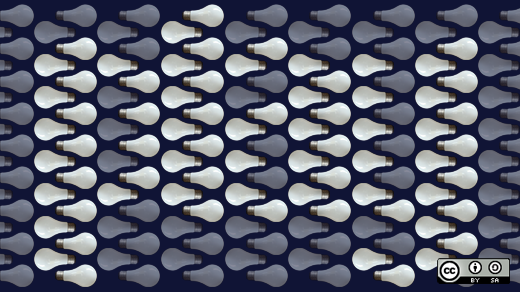"If I tell you that this is the greatest good for a human being, to engage every day in arguments about virtue and the other things you have heard me talk about, examining both myself and others, and if I tell you the unexamined life is not worth living for a human being, you will be even less likely to believe what I am saying. But that's the way it is."
- Passage from Socrates' famous speech at his trial.
Many have heard Socrates' famous quote about the unexamined life, but you may not have heard an interesting bit of philosophical history that I've run across on multiple occasions recently: Socrates was distrustful of the written word.
I guess our elders are always going to be distrustful of the new media.
Of course, it's one of the ultimate ironies that we only know his name and his work because his student Plato was the first student to take written notes on the dialogues. Writing and the Greek Alphabet were relatively new technologies then.
I've run across this curious fact about Socrates' distrust of text on three separate occasions in the last month:
1. The Information, by James Gleick.
2. Proust and the Squid, The Story and Science of the Reading Brain, by Maryanne Wolf
3. @DonaldClark brought up Plato's (Socrates' student) distrust of unchallenged narrative in a response to a great post on context, storytelling and narratives by John Hagel.
For the sake of getting to the point I won't go deep into any of these, but I'd recommend them for anyone interested in how we assimilate knowledge and how it's changing.
It's not an accident that smart people are talking about Socrates and his distrust of writing. Our modes of consuming and synthesizing information are perhaps changing faster than they have since Socrates' time. His objections to writing seem prescient and worth another look.
What were the objections Socrates had to reading and the written word?
Maryanne Wolf highlights each of the following:
1. Inflexibility - Socrates thought the only truth could come through expressing knowledge (synthesis) and actively questioning (analysis) of that knowledge. For him the written word was too static, too inflexible. Words in oratory come and go in an instant, yet the traces lingered. Our minds would hold the essence of the logic, and continually refine it. In this way, words received via oratory were like a clay, the written word like an uncarvable stone.
2. Loss of Memory - we would become lazy if we didn't have to memorize our ideas and understanding. When the word is written, Socrates felt that the page holds it, not the mind. You can just read it and forget it. So for Socrates, external word permanence led to mental impermanence.
3. Loss of Control of Language - knowledge would not come with the requisite understanding and might lose context. There wouldn't be enough feedback during our consumption of thought and knowledge. The context of oratory was king, and for Socrates, the context was lost on the written word. As Dr. Wolf writes in Proust and the Squid, " Ultimately, Socrates did not fear reading. He feared the superfluidity of knowledge and it's corrollary -- superficial understanding."
To sum it up, Socrates thought we would lead less examined lives if we relied on writing over oration. Oration allowed for iteratiion, ever-changing structures getting closer of truth. Living in stasis of belief is the unexamined life. To learn, we need ongoing and consistent feedback on our ideas, a consistent context perhaps?
In Socrates belief in oration and dialectic we find the the foundations of many of the institutions we now hold dear, including: higher education, scientific research and the scientific method, our political process and the courts (to name just a few). They each have their roots in the Socrates' dialectical method, in testing our knowledge and our models against our peers and the outside reality we are trying to model.
A hallmark of the Socratic method is the union of analysis and synthesis, and this, perhaps is a key clue to where we're heading. Socrates distrusted the written word because it separated analysis from synthesis, reader from author. In the social sphere, this is no longer true.
Another important change (I believe) is that dialectics are moving in parallel. The story of an idea can now live in several parallel universes, so we have a societal dialectic and a societal narrative moving in parrallel. And that's why Hagel's post on narrative and context is so important. It seems we've moved from an individual, one to one dialectic to a societal dialectic, a broader story. If an idea doesn't make sense in one domain, it may have a life in another. Ideas can get feedback in a variety of contexts and find its niche.
The New Dialectic:
Social media, in a sense, is a new form of massive peer to peer oratory and a new spin on a new dialectic, continually evolving with continuous feedback. And it matters deeply because what's changing in multiple different directions is our process of learning, our processes for examining truth. We have many new types of dialectic systems enabled by technology and the web. We comment on blogs, we ask questions on Quora, a new type of non-real-time dialectic.
But I don't think it ends there.
Our technology itself is becoming dialectic because it's a more effective way to develop a new system. Open source, lean startups, UX design (based on user feedback), groupware, open standards and open anything nowadays all have their foundations in first and foremost as feedback systems, ways of organizing group learning. Importantly, each of them achieve this by reuniting analysis and synthesis.
Iteration is in vogue everywhere because the web makes it low cost everywhere. Feedback is approaching free. Feedback creates diversity of solution for new niches.
We're just seeing the beginning of the effects in the health care industry (see #HCSMgate). For changes in healthcare see these posts by Susannah Fox and Seattle Mama Doc. Parallel societal and technological dialectics are just beginning to have an impact, just beginning to take shape, but the results so far are astounding. There will be many bumps in the road as our inflexible modes of understanding move to perpetual learning. We are beginning to see learning at scale and I believe we will benefit tremendously.
So let's make sure these words don't remain static and isolated in context. Tell me what you think.
Ideas Are Cheap ...Until they're shared






Comments are closed.